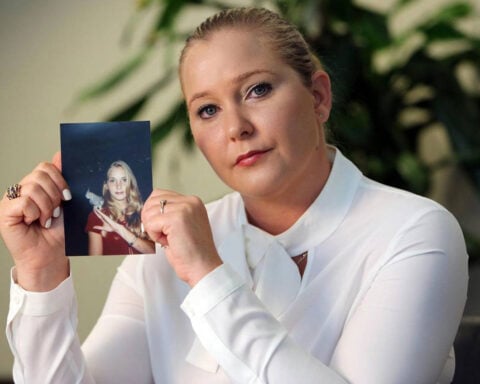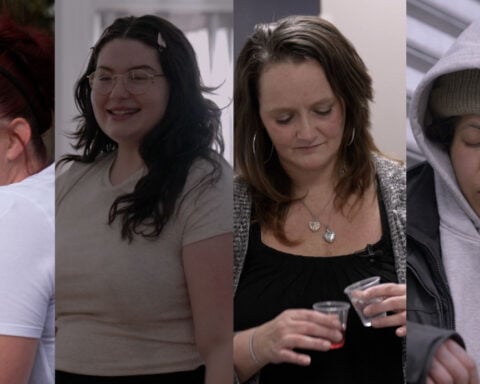The term toxic often tends to wield a certain degree of negativity. It's important to remember that the term "addict" isn't meant as a insulting but as a means of introspectively identifying potentially destructive patterns of behavior.. Noted therapist Jaime Mahler, who herself was once enmeshed in toxic behavior, has dedicated her professional life to helping others identify, understand, and modify their harmful behavioral patterns. This article aims to delve into Mahler's personal and professional journey, shedding light on the hallmarks of toxic behavior and suggesting ways to encourage personal growth and healthier relationships.
Recognizing the Problem
Mahler's journey towards self-awareness was sparked by a profound realization about her own behavior. Ironically, it was the healthy dynamics within her partner's family that made her question her own relationships and communication style. She observed their genuine warmth, laughter, and sincere appreciation for one another, which was a stark contrast to the superficial camaraderie displayed in her family only when guests were around.
This realization led her to reflect upon and acknowledge the destructive behavior she had grown up with and unwittingly adopted. Her journey towards change began at this point, eventually leading her to become a licensed therapist who helps others identify and rectify their toxic behaviors.
Toxic Behavior: A Closer Look
Toxic behavior can manifest in various ways, and everyone may have their unique patterns. However, Mahler highlights three key signs that indicate the presence of toxic behavior.
1. Passive Aggressiveness
In Mahler's experience, passive-aggressive behavior was a common way to express dissatisfaction or to try to get emotional needs met. She used to adopt the same approach in her romantic relationships, but eventually realized that straightforward communication was a healthier strategy.
2. Dependence on Validation
Another sign of toxic behavior, as per Mahler, is a heavy reliance on partners for self-affirmation. She learned that she was projecting her insecurities onto her partners, leading to unnecessary strain on the relationship. Instead, she began to address her insecurities independently, seeking professional help to change her codependent tendencies.
3. Persisting with Unfulfilling Relationships
Many of Mahler's friendships were marked by a sense of depletion, a common outcome of toxic relationships. They often involved gossip, arguments, and lack of boundaries. She decided to be honest with herself about the relationships she wanted to maintain and those she needed to let go of.
Changing Toxic Behavior: The Path Forward
Recognizing and admitting to toxic behavior is just the first step. The real challenge lies in transforming these patterns. Mahler's story offers valuable insights into undertaking this journey of change.
1. Self-Awareness
Becoming aware of one's toxic behavior is crucial. Mahler's realization came from observing healthier relationships. She began to recognize that her interactions were not fostering anything beneficial or positive in her life.
2. Education and Communication
Mahler emphasizes the importance of educating oneself about unhealthy patterns. She uses her podcast "Unlearned" and her Instagram account as platforms to share her knowledge and experiences, helping others identify and change their maladaptive behaviors.
3. Seeking Professional Help
Mahler also advocates for seeking professional help when needed. She herself sought therapy to address her codependent tendencies, which played a significant role in her transformation.
Navigating Relationships: A Healthier Approach
Through her experience and professional practice, Mahler offers key insights on how to cultivate healthier relationships.
1. Direct Communication
Mahler stresses the importance of direct communication in any relationship. She encourages people to be straightforward about their needs rather than resorting to passive-aggressiveness.
2. Independence and Validation
Another valuable lesson from Mahler's journey is the importance of self-validation. While it's natural to seek support from partners, relying on them for self-worth can lead to unhealthy dynamics. It is vital to work on personal insecurities independently.
3. Appropriate Boundaries
Maintaining appropriate boundaries is another crucial aspect of healthy relationships. Mahler's experience with her friends taught her the importance of setting boundaries and managing expectations in relationships.
Conclusion
Toxic behavior is harmful, but recognizing it and making a conscious effort to change can pave the way for personal growth and healthier relationships. As Jaime Mahler's journey demonstrates, change is possible. A willingness to change, as well as self-awareness, education, and, if necessary, professional aid, are necessary ingredients. Keep in mind that rather than being a dangerous weapon, the word "toxic" may be used as a means of self-improvement.

 Trump has begun another trade war. Here's a timeline of how we got here
Trump has begun another trade war. Here's a timeline of how we got here
 Canada's leader laments lost friendship with US in town that sheltered stranded Americans after 9/11
Canada's leader laments lost friendship with US in town that sheltered stranded Americans after 9/11
 Chinese EV giant BYD's fourth-quarter profit leaps 73%
Chinese EV giant BYD's fourth-quarter profit leaps 73%
 You're an American in another land? Prepare to talk about the why and how of Trump 2.0
You're an American in another land? Prepare to talk about the why and how of Trump 2.0
 Chalk talk: Star power, top teams and No. 5 seeds headline the women's March Madness Sweet 16
Chalk talk: Star power, top teams and No. 5 seeds headline the women's March Madness Sweet 16
 Purdue returns to Sweet 16 with 76-62 win over McNeese in March Madness
Purdue returns to Sweet 16 with 76-62 win over McNeese in March Madness








